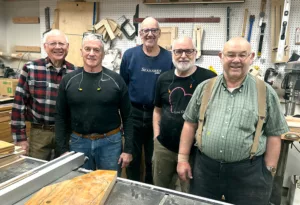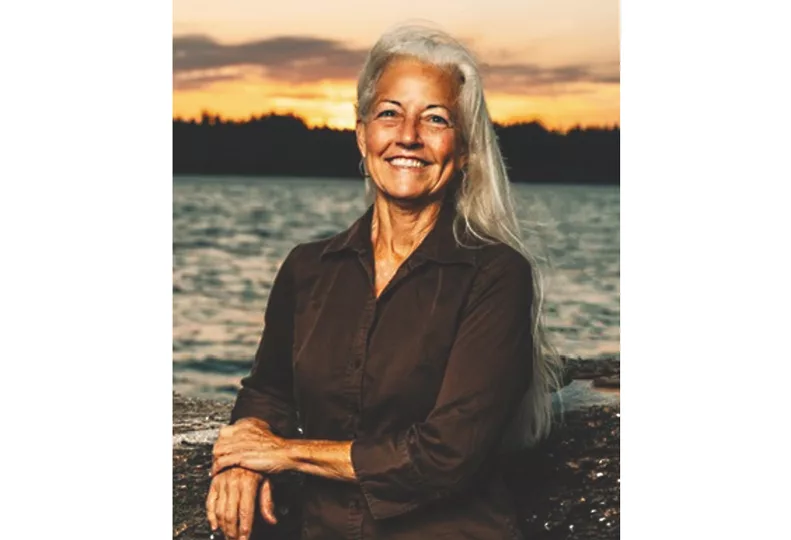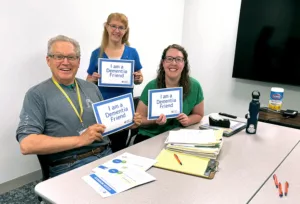
Catching up with former Spokane Mayor Mary Verner
Former Spokane Mayor charts career protecting natural resources

Mary Verner says her time as mayor of Spokane helped her find more opportunities after leaving office.
| Mary VernerAfter losing re-election in 2011, former Spokane Mayor Mary Verner returned to a career working to preserve and protect the environment and its natural resources, a passion she’s held her entire life.
At 68, Verner says she has no plans to retire. She currently lives on a farm in Lewis County, in the southwestern part of the state, and is enjoying her new role as the Snoqualmie Indian Tribe's director of ecology.
While her career in political office was short, she looks back at her time leading Spokane with appreciation and gives credit to the experience for the additional career opportunities she’s had since.
“I’ve been able to move on to wonderful additional career experiences, largely enhanced by my time at the city of Spokane,” Verner says.
A Georgia native, Verner first moved to Washington state in 1992 to serve as the natural resources director for the Spokane Tribe of Indians, where she was involved in establishing and protecting tribal water quality standards and repatriating wetland and habitats along the banks of rivers, streams, lakes, and other bodies of water. After a few years, she pursued a Juris Doctorate from Gonzaga University School of Law with a focus on environmental and federal Indian law.
“I realized I really needed that law degree that my dad had told me I needed,” says Verner, who also holds a master’s degree in environmental studies from Yale University. “It was a really good fit for my work with tribes.”
After leaving the Spokane Tribe for a similar role with the Upper Columbia United Tribes, Verner moved to Spokane’s South Hill neighborhood and was elected to the Spokane City Council in 2003. Verner recalls her time with the city council as an opportunity that helped her better understand how the city works and strengthen ties with the local tribes and her community.
In the early 2000s, the city of Spokane had several mayors who served for a short period of time. Verner ran against and defeated Mayor Dennis Hession, who had been serving in an interim role after former Mayor James West had been ousted in a recall vote in December 2005. Verner remembers the start of her term marked by several crises. She was sworn in early, in December 2007, and soon after, a record snowfall hit the region, closing down all the roads.
“I worked with the city of Spokane Valley and Spokane County to just get all hands on deck,” she recalls. “I found that right away to be something I appreciate about the Spokane area: as a crisis happened, people got together. Leaders got together and worked on it. From the beginning, that was very memorable.”
The 2008 global recession also came under Verner’s watch. She worked with the business community, many of whom had to cross ideological lines with her, to collaborate on projects and funding to help the city, she says. Together, the community was able to secure federal funds that aided in transportation projects, such as making progress on the North Spokane Corridor and matching funds to help pay for local street projects. The community also brought in help from private-sector professionals and state officials, including current Mayor Lisa Brown, who at the time was the state Senate majority leader, to make progress on plans such as the University District and Kendall Yards, Verner says.
“I’ll never forget how the community pitched in, and we rode out the storm, and Spokane was stronger after the recession than we were before,” Verner says. “It was the crisis response that I’ll probably remember the most. It doesn’t sound like it, but it’s my happy spot. I love getting together with a team and solving complex problems.”
Among other accomplishments, Verner also recalls projects that helped move the city forward, such as the government efficiency program dubbed Employee Led Innovation, in which employees brainstormed ideas on how to save money and provide more efficient services. One outcome of that group was the creation of more efficient garbage hauling routes that reduced mileage on the city trucks and provided better service to users. Other memories include a new fire station in the West Plains and economic development projects in Hillyard, she says.
In her running for re-election, Verner says he was caught off guard by the aggressive campaign tactics deployed at the time. She easily won the primary, but lost the general election to David Condon, who went on to serve for two terms from 2011 to 2019.
“Today, most campaigns are that way, but at the time, it was rather unexpected,” she says. “However, I think that my successor did a great job, obviously served for two terms. … The city’s resilience through change is consistent. Spokane gets good leaders across the board.”
After leaving office, Verner served as CEO of Spokane Tribal Enterprises, where she worked to diversify the various business entities owned and operated by the Spokane Tribe of Indians. The role was only for a short period until the tribe could hire a tribal member, which was always the plan, she says. Next, she was hired by the Washington state Department of Natural Resources, where she led the Wildfire Program, followed by the Washington Department of Ecology Water Resources Program.
She left the state department in 2023. As she was leaving the state department, the Snoqualmie Tribe reached out with an opportunity perfectly tailored for her, in which she is an advocate for all matters and projects connected to natural resources and the environment.
“What inspires me still to this day is my ancestry,” says Verner, whose paternal ancestors were Muscogee Native Americans. “My family’s people were tied to the land. It’s just in my roots.”





